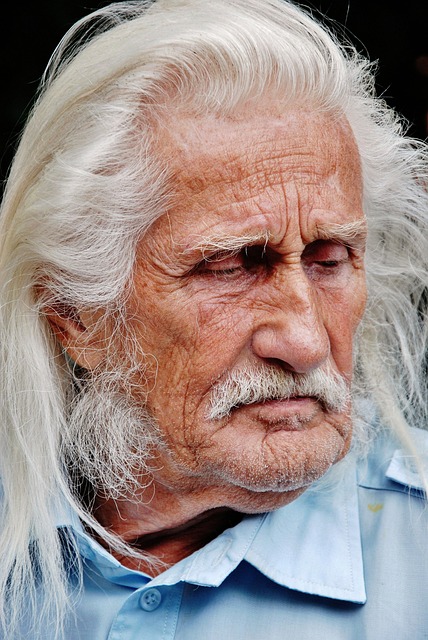Healthcare directives, including living wills and advanced care directives, empower individuals to control their end-of-life care by specifying medical treatment preferences and appointing a healthcare agent. A well-crafted directive guides care in emergencies, ensures alignment with personal values, and fosters open communication among patients, families, and healthcare providers. Consulting an end-of-life attorney is crucial for drafting comprehensive documents that align with patient wishes regarding palliative care, hospice planning, and overall end-of-life care preferences, ensuring respect for individual choices throughout their final journey.
“In the realm of end-of-life planning, healthcare directives are your voice and guide when you can’t speak for yourself. This essential document ensures your wishes regarding medical treatment are respected, empowering you to take control.
This comprehensive article navigates the intricacies of healthcare directives, offering expert advice on creating a living will and highlighting the crucial role of an end-of-life attorney. We also explore holistic approaches, including palliative care, hospice planning, and legal services, for a well-rounded strategy in end-of-life care.”
- Understanding Healthcare Directives: What They Are and Why They Matter
- Creating a Living Will: Steps to Ensure Your Wishes are Respected
- The Role of an End-of-Life Attorney in Drafting Medical Directives
- Integrating Palliative Care, Hospice Planning, and Legal Services for Holistic End-of-Life Care
Understanding Healthcare Directives: What They Are and Why They Matter

Healthcare directives are critical tools for individuals to take control of their end-of-life care and ensure their wishes are respected. These legal documents, also known as advanced care directives or living wills, allow you to communicate your preferences regarding medical treatment and end-of-life decisions. They appoint a healthcare agent who will make decisions on your behalf if you become unable to do so.
Understanding these directives is essential for effective end-of-life planning. A well-crafted healthcare directive can guide your care when facing medical emergencies or complex health situations, ensuring you receive the care that aligns with your values and goals. It empowers you to have a voice in your medical journey, even when you might not be able to speak for yourself, and it fosters open communication between patients, families, and healthcare providers.
Creating a Living Will: Steps to Ensure Your Wishes are Respected

Creating a Living Will is a proactive step in end-of-life planning, ensuring your wishes regarding healthcare and medical treatment are respected and followed. This legal document, also known as an Advanced Care Directive or Healthcare Directive, allows individuals to make decisions about their care when they become unable to do so themselves. The process involves clear communication with an end-of-life attorney who can guide you through the steps to create a legally binding directive.
Here’s how to get started: first, gather information about your medical conditions and preferences for treatment. Next, consult with an attorney specializing in end-of-life legal services to draft the document. This ensures that your decisions, especially regarding palliative care planning and hospice care, are accurately reflected. A well-prepared living will can help navigate challenging situations, providing clarity during what can be a confusing and emotional time, and allowing you to maintain control over your end-of-life care.
The Role of an End-of-Life Attorney in Drafting Medical Directives

When navigating complex end-of-life care decisions, one crucial professional to consider is an end-of-life attorney. These legal experts play a vital role in assisting individuals with drafting and refining healthcare directives, such as living wills and advanced care directives. They ensure that these documents accurately reflect the patient’s wishes regarding their medical treatment and end-of-life care preferences.
An end-of-life attorney can provide valuable guidance on state-specific laws and regulations related to these directives, ensuring they are legally sound. They help individuals appoint a medical power of attorney, allowing them to designate someone to make healthcare decisions if they become unable to do so. This process is essential for seamless transition into palliative care or hospice planning, ensuring that the patient’s wishes are respected throughout their end-of-life journey.
Integrating Palliative Care, Hospice Planning, and Legal Services for Holistic End-of-Life Care

Integrating palliative care, hospice planning, and legal services is essential for comprehensive end-of-life care. Palliative care focuses on providing relief from symptoms and stress, enhancing quality of life for both patients and families. By incorporating these services early, individuals can ensure their wishes are respected, receiving compassionate care tailored to their needs.
Hospice care planning, along with advanced care directives like living wills and medical power of attorney, ensures that decisions align with the patient’s goals and values. An end-of-life attorney can help navigate legal aspects, ensuring medical directives are correctly documented and implemented. This holistic approach prepares individuals for potential health outcomes, fostering peace of mind and empowering them to take an active role in shaping their care during life’s final chapters.
In light of the above discussions, it’s clear that comprehensive end-of-life planning, including healthcare directives like living wills and advanced care directives, is essential for ensuring your wishes are respected. By integrating palliative care planning, hospice care considerations, and expert legal services from an end-of-life attorney, you can achieve holistic end-of-life care. Remember that proactive steps taken today can make a profound difference in how your healthcare is managed when you’re unable to speak for yourself, providing peace of mind and control over your future.
